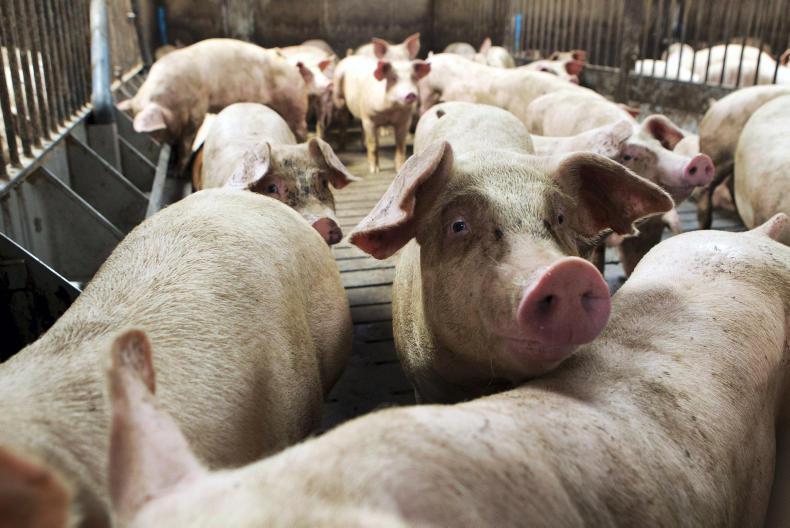Pre-weaning mortality, redesigning your pig farm and adequate insurance were just some of the topics of note at this week’s Teagasc Pig Farmers’ Conference.
This year’s conference was held at the Cavan Crystal Hotel in Cavan and the Horse & Jockey Hotel in Tipperary on Tuesday and Wednesday respectively.
Dr Peadar Lawlor advised pig farmers at the conference as to what they can do to help overcome the ban on zinc oxide, a feed additive in pig diets, after the European Commission voted to ban it.
The additive is to be phased out of use over the next five years after it was found to be detrimental to the environment and also it has been claimed that zinc oxide may increase the prevalence of antibiotic-resistant bacteria.
Speaking to the Irish Farmers Journal, Ciarán Carroll, head of the pig development department, Teagasc, said that there was a broad array of topics relating to nutrition, pre-weaning mortality, insurance and farm investment at the conference.
Benefits
“The economic benefits of phased feeding [were presented at the conference]. Here you would feed a number of different diets.
“For example, you would feed one diet from 30kg to slaughter [instead of a standard diet] and still get good performance. This would reduce standard feeding to what is actually required by the pig and there are economic benefits to the farmer.” There was a big focus on nutrition at the conference, with presentations on feeding practices and strategies for feeding pregnant and lactating sows.
“This presentation would show how farmers can have sows in the correct condition [at these times].”
Guest speaker at this year’s event was Dr Bob Goodband from Kansas State University, who looked at both sow and grower diets for the modern pig.
Farmers also received an update on an overview of all ongoing research projects in the pig development department.
Meanwhile, on markets, Carroll said that the market for pigs has been good this year, with prices starting to slip a bit now.
“Overall, it has been a good year. Pig feed prices are holding their own and there’s no big pressures.”






 This is a subscriber-only article
This is a subscriber-only article





SHARING OPTIONS: